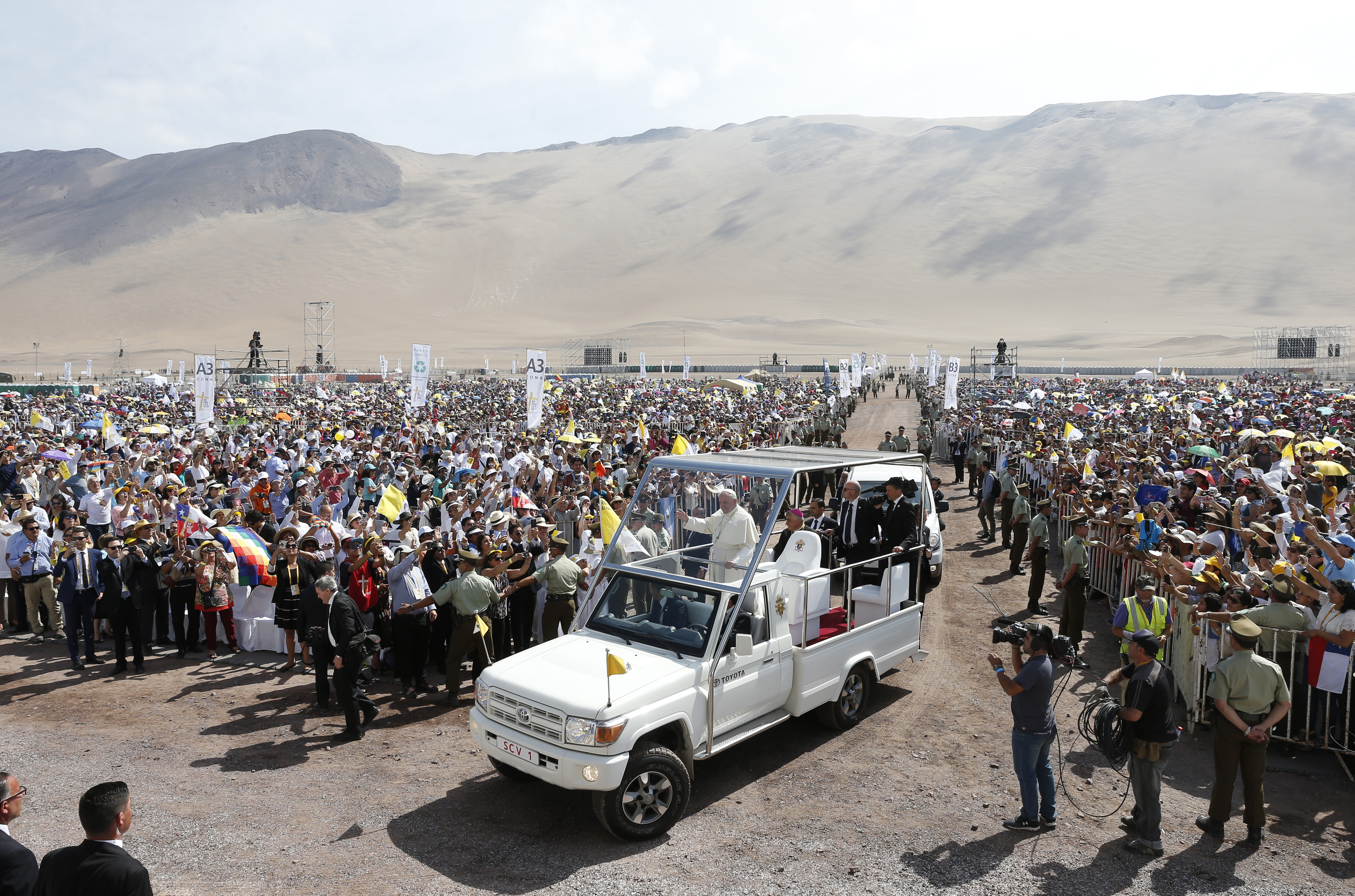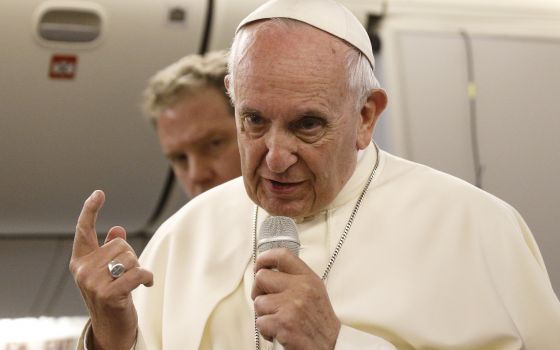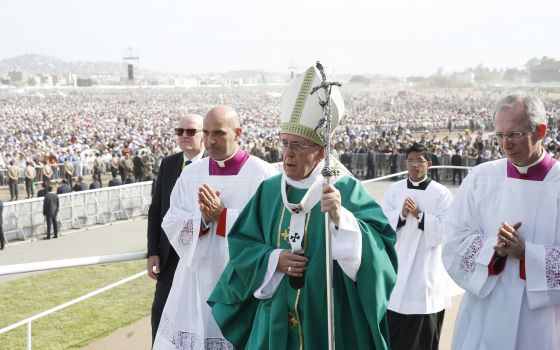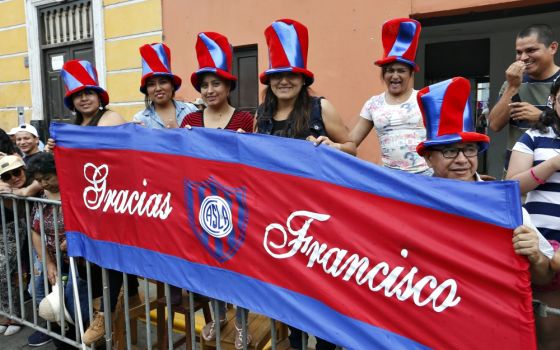
Pope Francis greets the crowd before celebrating Mass at Lobito beach in Iquique, Chile, Jan. 18. (CNS/Paul Haring)
Pope Francis wrapped up his three-day visit to Chile Jan. 18 by asking the country to protect the record numbers of migrants crossing its borders to benefit from its economy, Latin America's most vibrant, from those who would take advantage of them.
In a homily in this bustling Pacific port city on the edge of the Atacama desert, which has now become home to nearly two-dozen migrant slums, the pope told Chileans that immigrants are "an icon of the Holy Family, which had to cross deserts to keep on living."
"This land is a land of dreams, but let us work to ensure that it also continues to be a land of hospitality," the pope told 50,000 people gathered for an outdoor Mass on an open field at the edge of the "Dragon Dune," an enormous sand dune that separates the desert from the coast.
"We know very well that there is no Christian joy when doors are closed; there is no Christian joy when others are made to feel unwanted, when there is no room for them in our midst," said Francis.
"Let us be attentive to those who profit from the irregular status of many immigrants who don’t know the language or who don’t have their papers 'in order,'" he asked. "Let us be attentive to the lack of shelter, land and employment experienced by so many families."
Francis celebrated Mass as his last public event in Chile, where he has called attention to issues of inequality and native peoples' rights but has also faced criticism over his and the local Catholic Church's handling of clergy sexual abuse cases.
The pope is facing particular criticism over his 2015 appointment of Osorno, Chile Bishop Juan Barros Madrid, who he defended in brief remarks to local journalists in the morning of Jan. 18.
Chile is now considered by several indices as the most competitive economy across Latin America, which has led to an influx of migrants. U.N. statistics indicate Chile had the fastest annual rate of migrant growth of any country in the region between 2010-15.
Migrant communities are worried about the incoming presidential administration of Sebastian Piñera, who said during his campaign that he would seek stricter border controls. Piñera, a former president, will replace Michelle Bachelet, the head of the country's Socialist Party, in March.
Francis was reflecting in his homily Jan. 18 on John's account of the wedding feast at Cana, at which Jesus and his mother Mary were guests. According to the story, Mary tells Jesus that the hosts have run out of wine, and then tells the waiters to do whatever Jesus asks of them, allowing Jesus to turn water into wine.
The pope said that Mary continues to tell Jesus things on our behalf today, and that, like her, we can speak up on behalf of others.
"Mary passes through our towns, our streets, our squares, our homes and our hospitals," he said. "She notices all those problems that burden our hearts, then whispers into Jesus’ ear and says: Look, 'they have no wine.'"
Advertisement
"Like Mary at Cana, let us make an effort to be more attentive in our squares and towns, to notice those whose lives have been 'watered down,' who have lost — or have been robbed of — reasons for celebrating," asked Francis. "And let us not be afraid to raise our voices and say: 'They have no wine.'"
Francis is to leave Iquique in the afternoon of Jan. 18 for Chile's northern neighbor Peru, where he will be visiting through Jan. 22.
The pope will begin his visit in Peru Jan. 19 with a visit to Puerto Maldonado, a small city in the Amazon rainforest, where he will hold a meeting with the local population. He will then meet later that day with Peruvian President Pedro Kuczynski in Lima, the country’s capital.
[Joshua J. McElwee is NCR Vatican correspondent. His email address is jmcelwee@ncronline.org. Follow him on Twitter: @joshjmac.]






